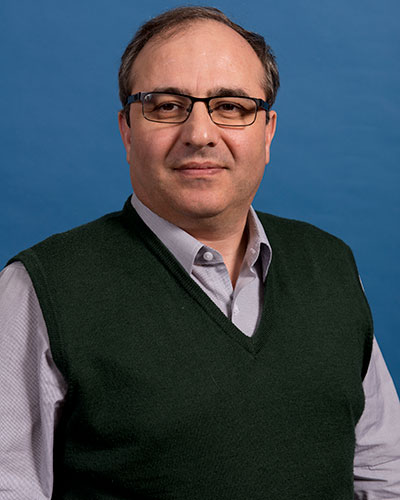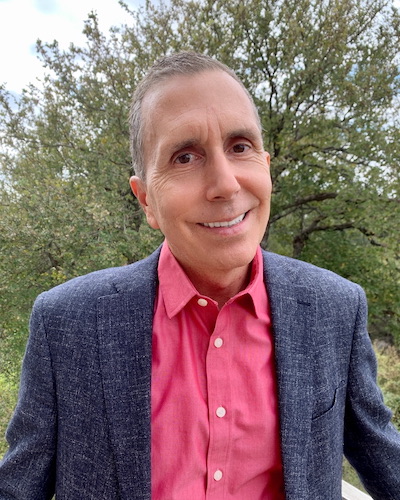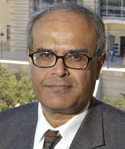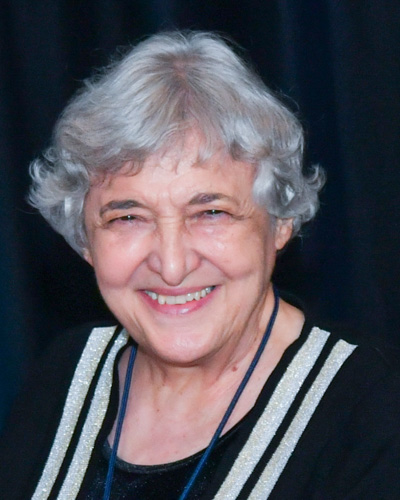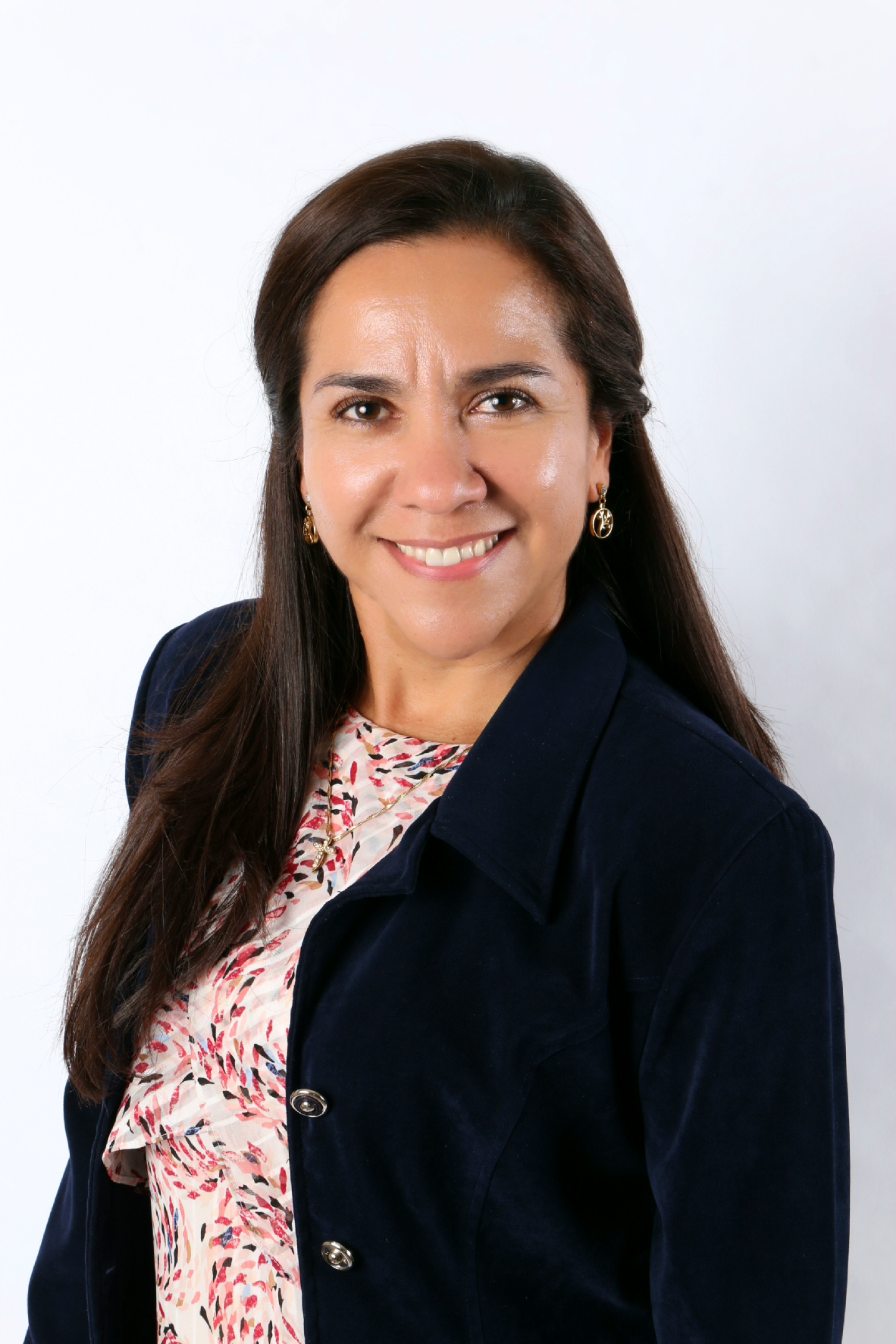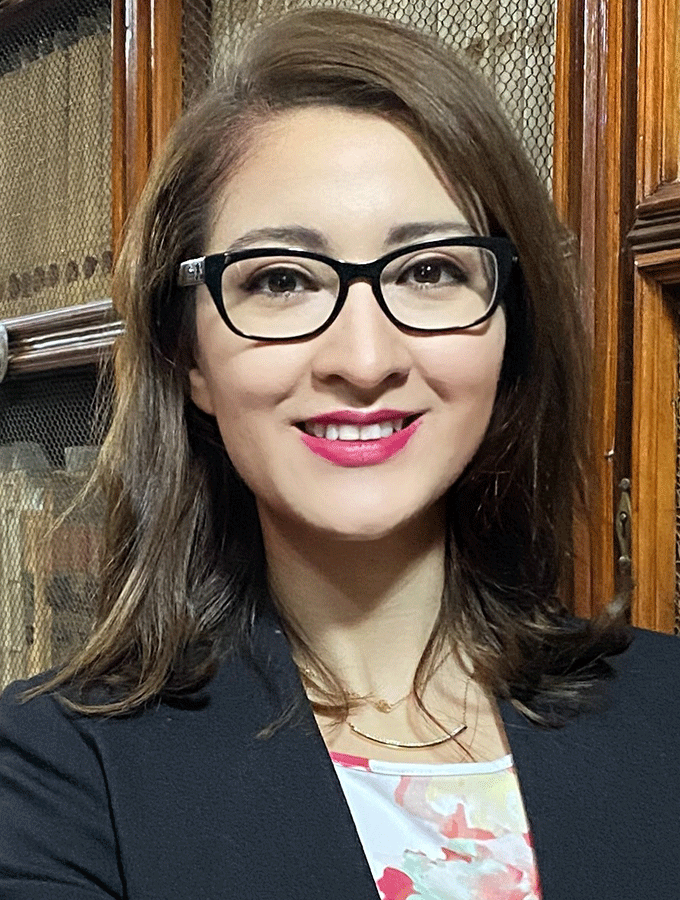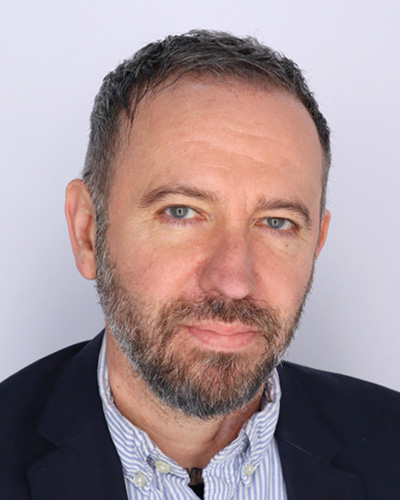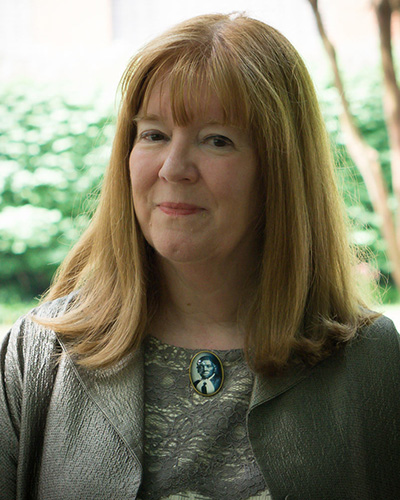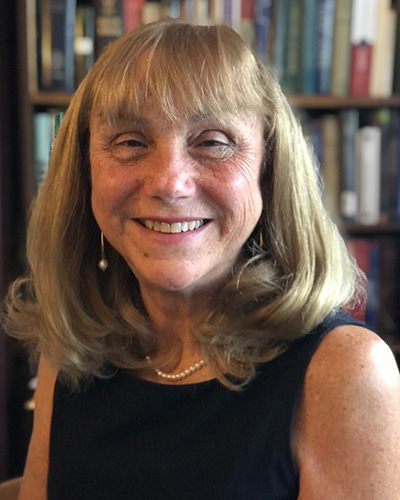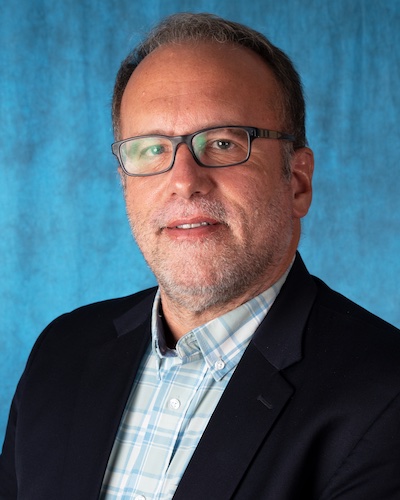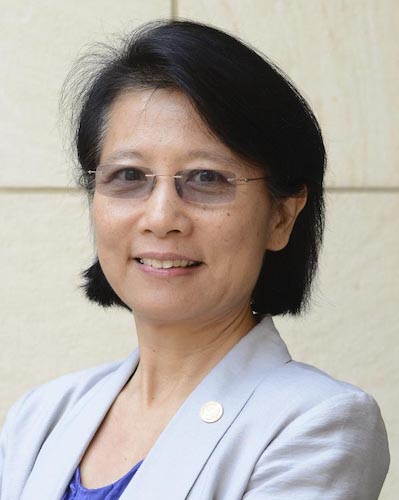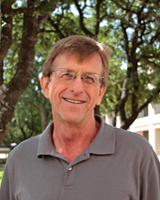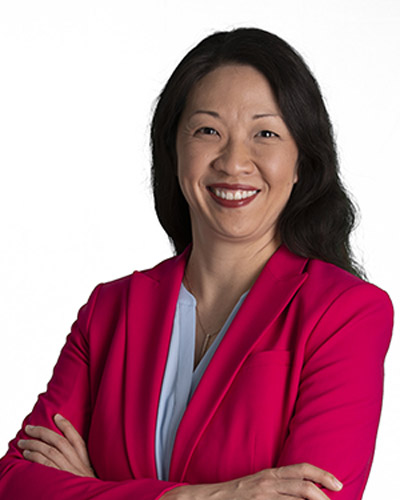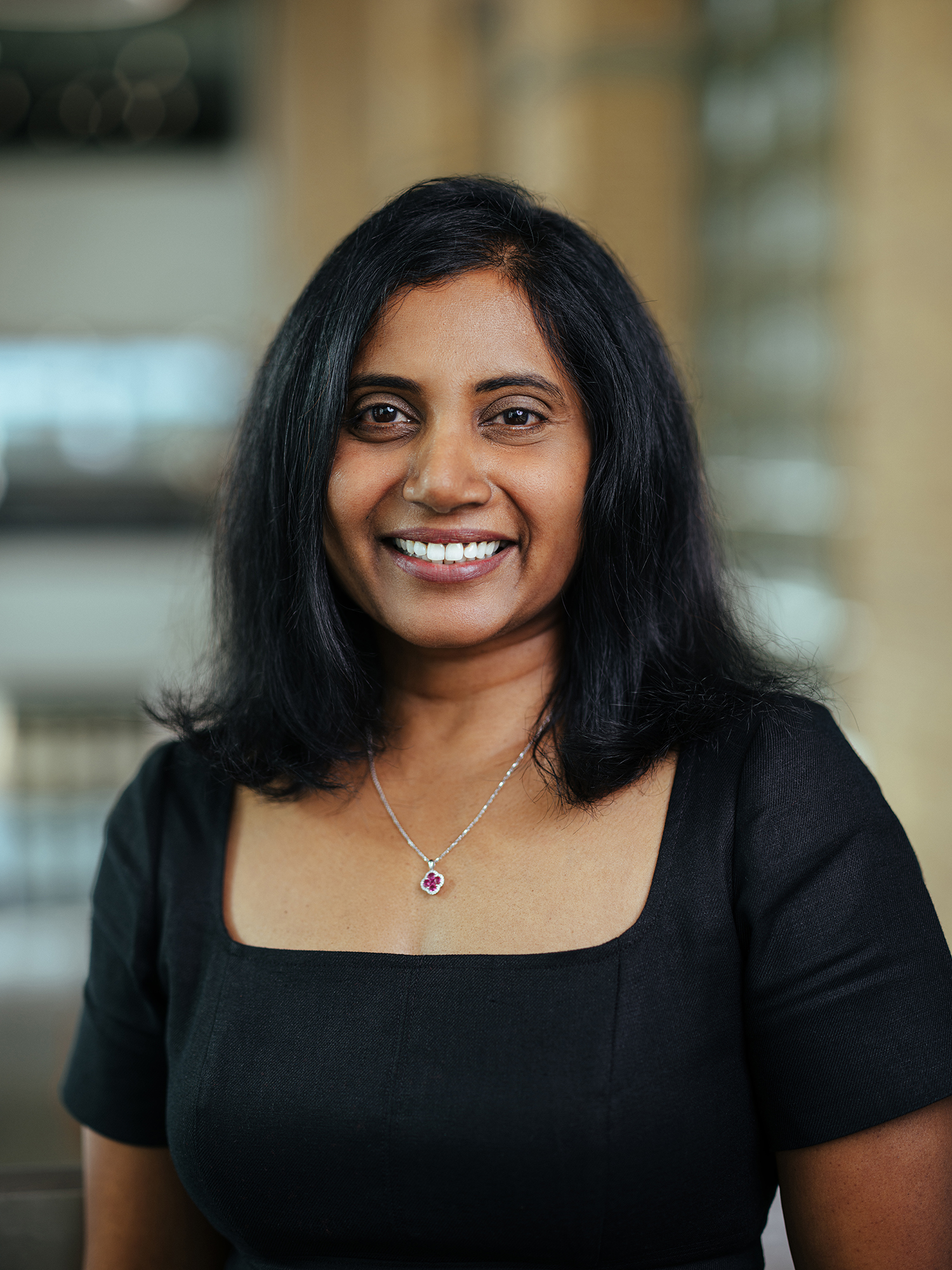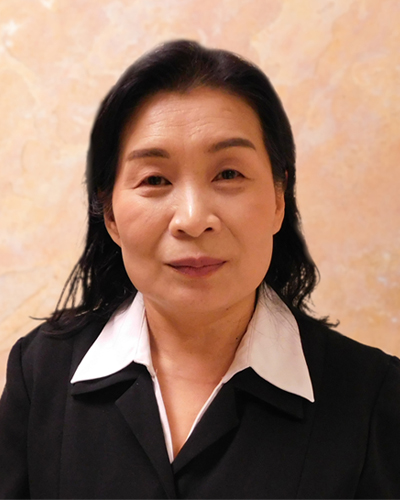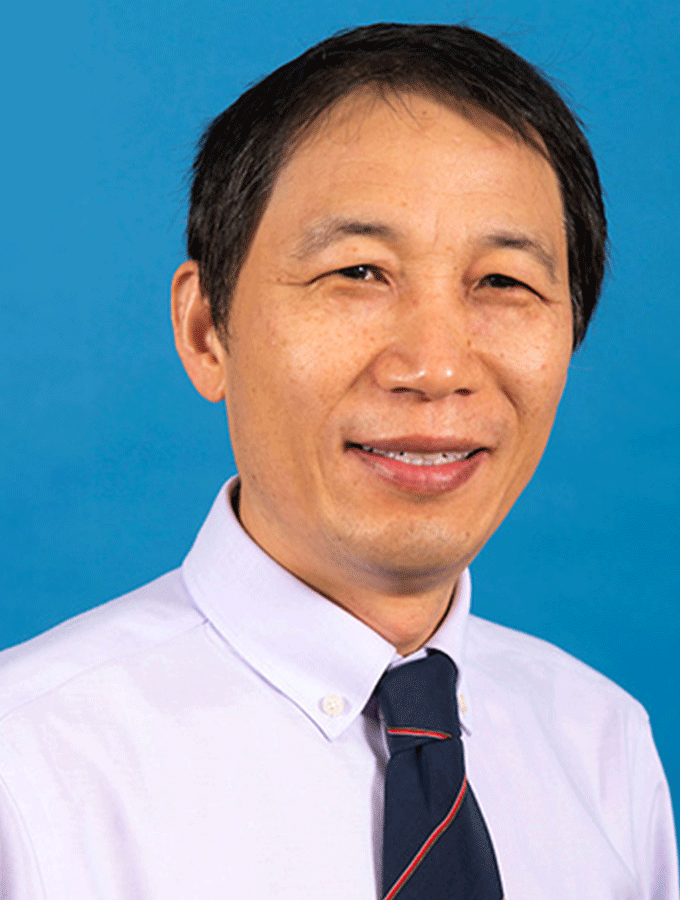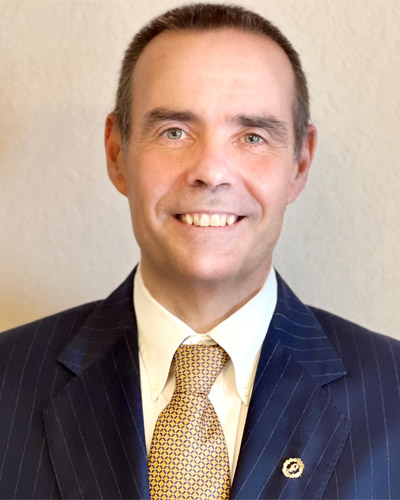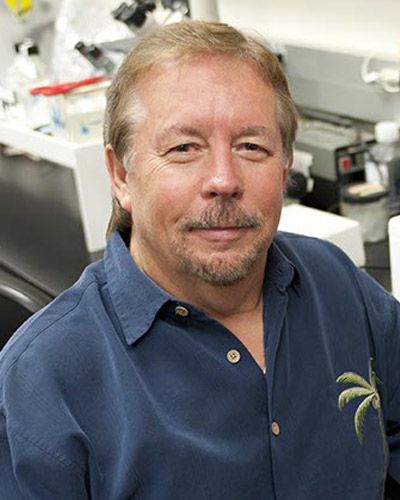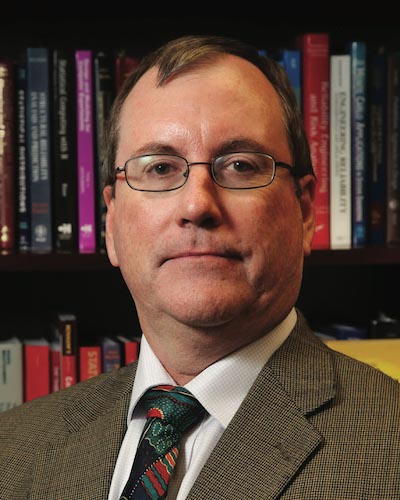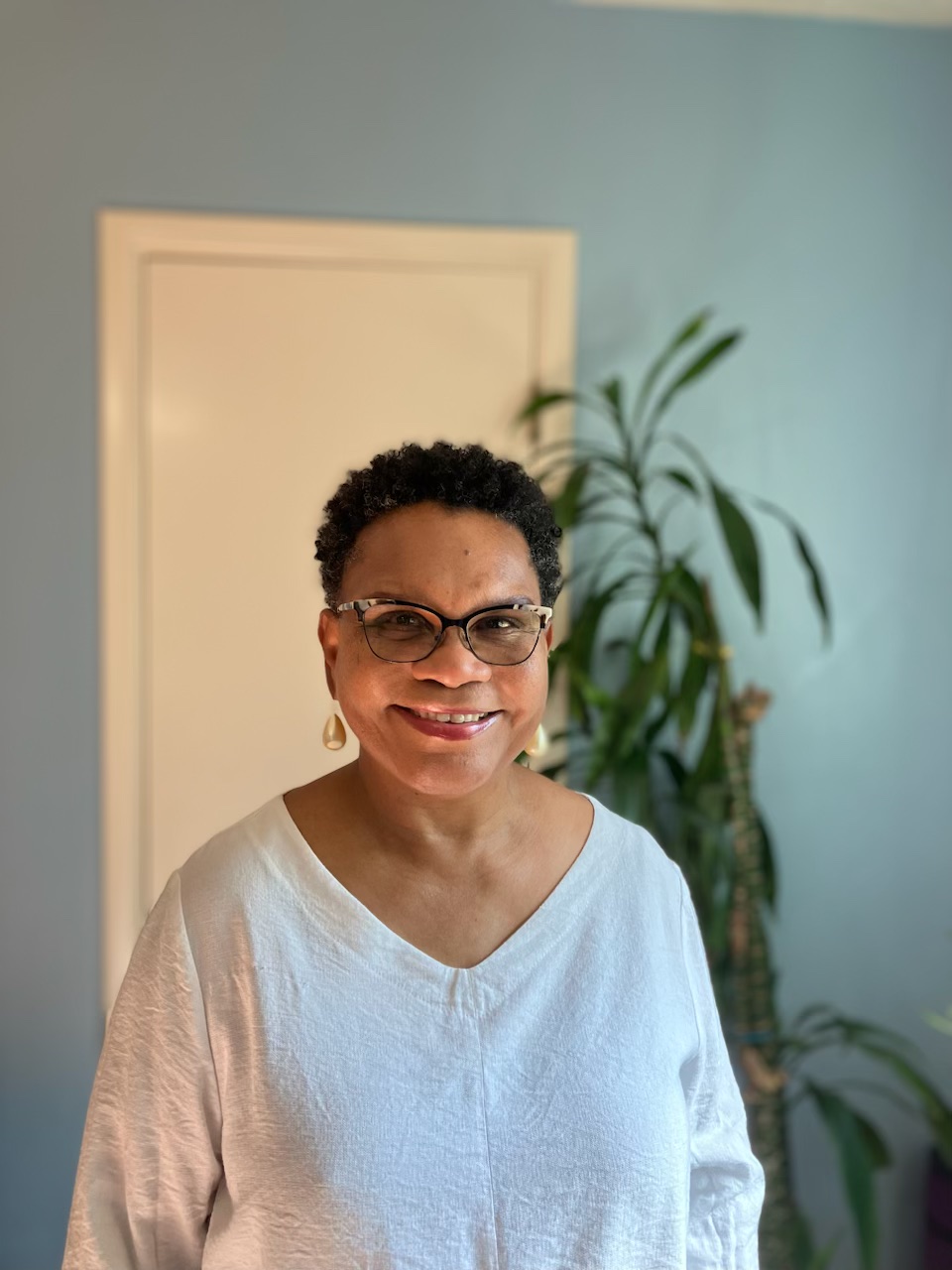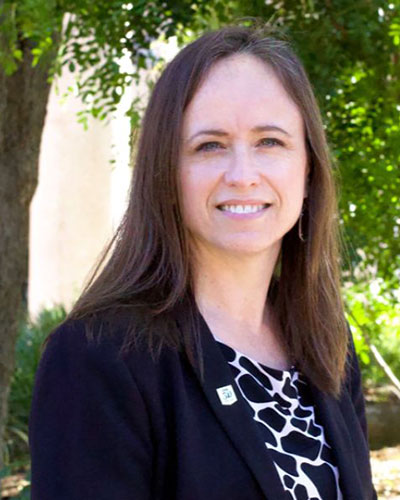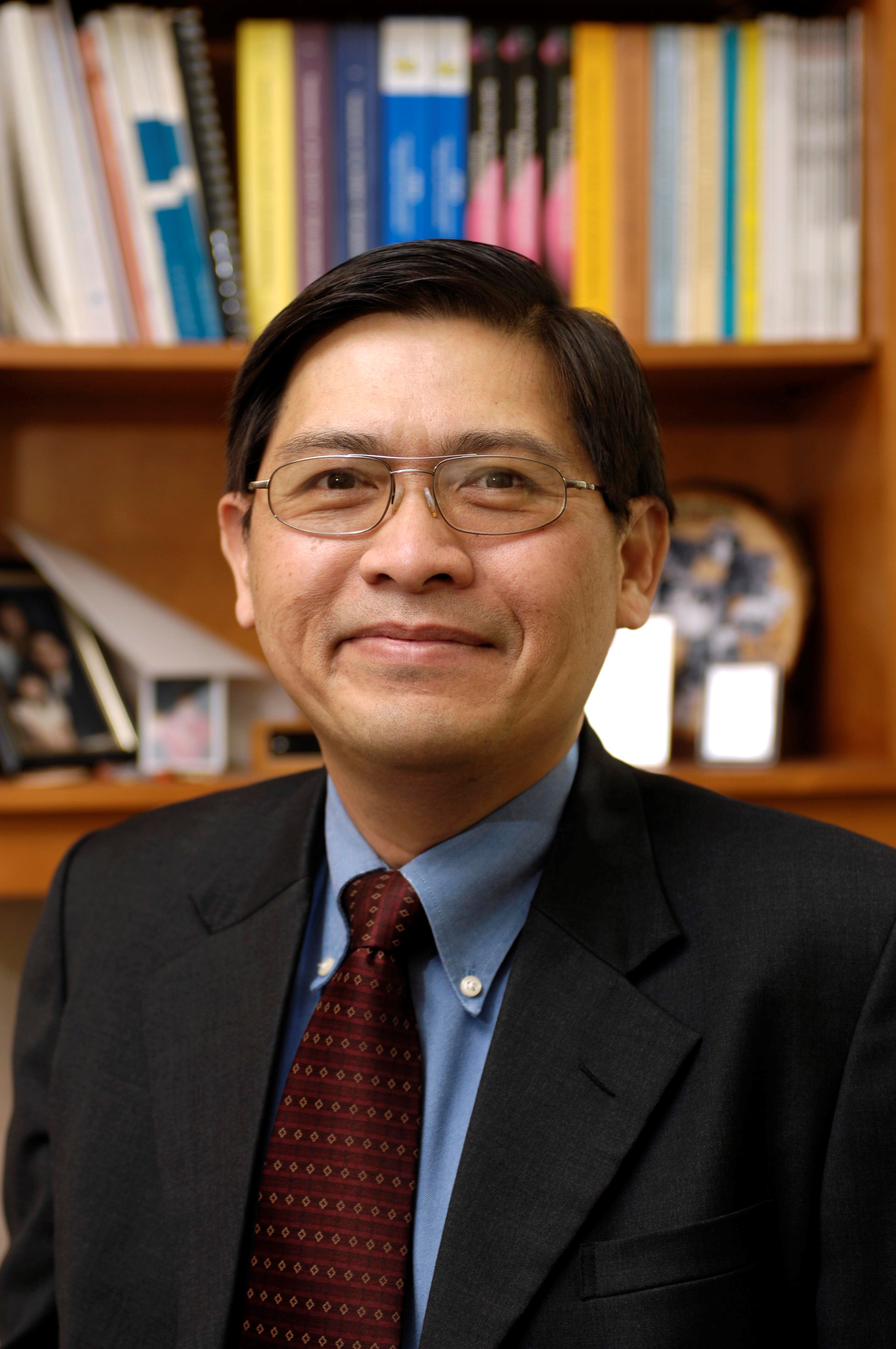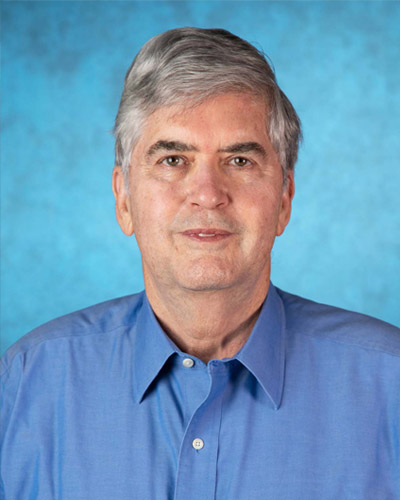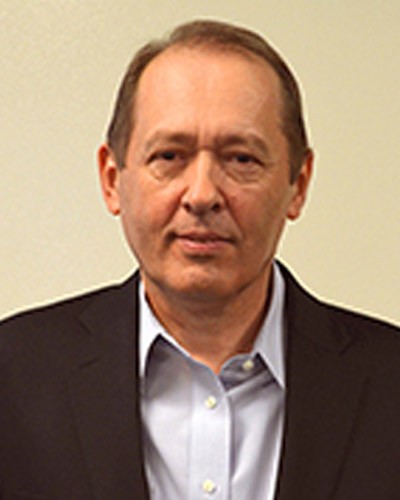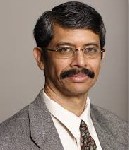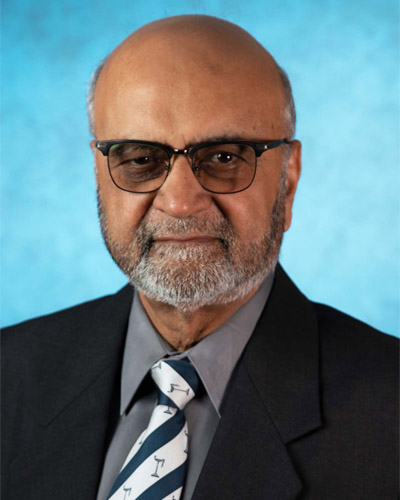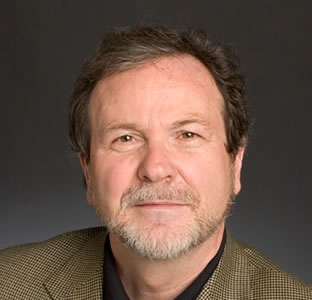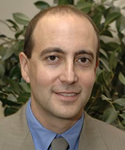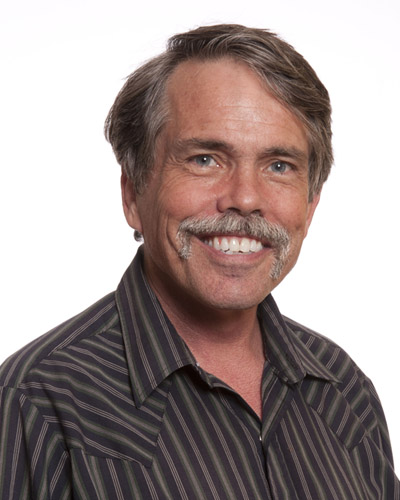Members
My research focuses on developing scientific tools applicable to the theory and practice of visual data analytics and security systems. As an engineering professor and entrepreneur, I am often asked for my views on whether entrepreneurship can be taught. After all, entrepreneurial experience may be tough to get within the bounds of a full-time educational and research experience. What follows is my research philosophy and vision of what I think it takes to help students develop the core technical and practical skills to change the world for the better.
Over the past 20 years, I have taught and done research under three basic principles: 1) inspire knowledge in students; 2) stress creativity and imagination in their work; 3) offer them the opportunity to do more. These principles have been fundamental to my success as an instructor and researcher. My long-term research agenda is to work with students and faculty to help form a global, interdisciplinary research team, emphasizing the usage of complex digital big-data processing technologies to solve the engineering challenges currently facing the military, biomedical, health, and industrial organizations.
David Akopian
College of Engineering and Integrated Design
Inducted 2021
David Akopian is a professor of electrical and computer engineering and most recently, associate dean of research for the College of Engineering (now the College of Engineering and Integrated Design). His research interests are in a broad area of communication and navigation systems, focusing on wireless sensing, communication, location technologies, and mobile applications such as human-machine automated dialog systems and mobile health.
Akopian was inducted as a fellow of the National Academy of Inventors in 2016 and has over 30 patents. He is the founder and director of the UTSA Software Communications and Navigation Systems Laboratory. Since 2004, his lab has trained more than 100 students who have gone on to successful careers at a variety of companies, including Apple, Google, Samsung, Cisco Systems, Amazon, Intel, and Verizon.
John Bartkowski
College of Health, Community and Policy
Inducted 2019
John Bartkowski is a sociology professor whose appointment at UTSA began in 2008. One strand of his research examines the intersection between religion, family, gender, and child development. Another considers the role of government agencies, faith-based organizations, and secular nonprofits in fostering public health and community development, often with a focus on Mississippi. He has evaluated and collaborated in research projects funded by the National Science Foundation, National Institutes of Health, Centers for Disease Control and Prevention, Kellogg Foundation, and Substance Abuse and Mental Health Administration, among other federal agencies and foundations.
William Faulkner said, “To understand the world, you must first understand a place like Mississippi.” Bartkowski aims to do both. His current research examines how worldwide forces such as globalization, consumerism, economic restructuring, and political transformations influence local community dynamics and social identities in particular geographical locales as diverse as Mississippi, Hawaii, and various European countries. He uses mixed methods with qualitative and quantitative data collected from individuals, households, organizations, and whole communities to examine these phenomena.
Professor Beladi is the Janey S. Briscoe Endowed Chair in Business. He is the co-founder of the International Review of Economics and Finance ( Elsevier) and served as editor from 1992-2018. He is the editor-in-chief of the North American Journal of Economics and Finance, Elsevier ( 2010-present), Series editor of Frontiers of Economics and Globalization, Emerald ( 2006-present), and associate editor of Review of International Economics, Wiley (1992-present). He also serves as a member of the editorial boards of several other academic journals. He is a co-founder of the International Economics and Finance Society (IEFS).
Professor Beladi has published extensively in a wide spectrum of high-quality and leading scholarly journals including over 300 papers in peer-reviewed academic journals. He also has published and co-edited 20 research volumes. His research interests include The economics of migration of skilled and unskilled labor, International trade in technology, Global outsourcing, and Fraudulent financial practices.
“Research contributes to the production of knowledge, while teaching is concerned with the distribution of knowledge in society. The process of production and distribution in this context are so intertwined that any effort to disentangle them is simply meaningless. Teaching without research quickly becomes stereotyped, unexciting, and far removed from the ever-growing frontiers of knowledge, while research without teaching becomes unintelligible and uncommunicative. Continuous interaction with fresh minds through teaching makes research more proactive and highly productive”, said Beladi.
Professor Bizios’ research interests include cellular bioengineering, tissue regeneration, tissue engineering, biomaterials and biocompatibility. Her research has used cultured mammalian cells, various biochemical/biological assays and novel, custom-made laboratory set-ups to address (at the cellular, molecular and gene levels) fundamental questions pertinent to functions of cells from select soft and hard connective tissues.
In vitro studies investigated cell interactions with implant materials (including nanostructured ones), chemical modification of substrate material surfaces, as well as the effects of biochemical cues (e.g., growth factors) and select biophysical stimuli (specifically, sustained and cyclic pressure and electric current) to promote cell (including stem cell) functions pertinent to new tissue formation. In addition to elucidating fundamental scientific aspects relevant to cellular/biomedical engineering, the results of these research endeavors have the potential of applications in tissue engineering and biotechnology and of contributions to the
Astrid Cardona
College of Sciences
Inducted 2023
Dr. Cardona is a scientist educator who joined the faculty at UTSA in 2009 and established a research program in neuroinflammation. Dr. Cardona’s laboratory studies the interplay between the nervous and immune systems in diabetes and multiple sclerosis (MS). She is interested in clarifying the protective and detrimental roles of the innate immune system, determining the origin of tissue injury factors that account for disease progression, and testing neuroprotective therapies via modulation of immune cell function.
Dr. Cardona’s team has generated novel experimental models to address the role of macrophages in disease processes that lead to blindness in diabetic retinopathy and the loss of nerve cells in MS. Her research has been supported by the NIH, the National Multiple Sclerosis Society, the San Antonio Area Foundation, and the San Antonio Medical Foundation.
Dr. Cardona received the TAMACC Women of Distinction Award and the UTSA Faculty Mentor Award for Undergraduate Research. Dr. Cardona is a member of the American Society for Neurochemistry and the American Association of Immunologists and a fellow of the Aspire Leadership Academy.
Krystel Castillo
College of Engineering and Integrated Design
Inducted 2021
Krystel Castillo is the GreenStar Endowed Professor in Energy in the Department of Mechanical Engineering. She has led research efforts in energy and sustainability through the Texas Sustainable Energy Research Institute since 2017, including the strategic alliance and research portfolio of up to $50 million with CPS Energy, the largest municipally-owned electric and gas utility in the country.
Castillo has built a strong research group with expertise in the creation of optimization algorithms to solve large-scale instances of engineering systems, as well as big data analytics methods with applications to the engineering fields of clean energy, defense manufacturing and cybersecurity for manufacturing. As part of the $111 million Cybersecurity Manufacturing Innovation Institute residing at UTSA, Castillo serves as its vice president for energy efficiency. She is mission-driven in contributing theoretical and pragmatic innovations to secure and sustain American leadership in global manufacturing competitiveness.
Michael Cepek
College of Liberal and Fine Arts
Inducted 2024
Michael Cepek is Professor of Anthropology at the University of Texas at San Antonio and President of the Cofán Survival Fund, a U.S.-based nonprofit that supports the land-rights, healthcare, and educational initiatives of Ecuador’s Indigenous Cofán Nation. His work explores the relationship between cultural difference, political power, and environmental change in the Andean foothills and Amazonian forests of Cofán territory. Dr. Cepek’s overarching goal is to bridge the gaps between nuanced ethnography, theoretical innovation, public scholarship, and direct contributions to Cofán welfare.
As a teacher and scholar-advocate, Dr. Cepek engages debates in environmental, economic, and political anthropology, religious studies, conservation policy and practice, and collaborative research and filmmaking with Indigenous Peoples and other marginalized groups. All his projects have academic, applied, and advocacy dimensions, and they are based on a 30-year partnership with the Cofán Nation. His first book was a study of Cofán environmental politics, his second was an ethnography of Cofán encounters with the oil industry, and his third—now in process and co-authored with the Cofán shaman Cesario Lucitante—is an investigation of the relationship between shamanism and dispossession in Cofán territory.
Dr. Cepek obtained a doctorate in anthropology at the University of Chicago and held a Mellon Postdoctoral Fellowship at Macalester College. His graduate education was funded by a National Science Foundation Graduate Research Fellowship, a University of Chicago Century Fellowship, two Tinker Foundation summer research grants, a Fulbright Institute for International Education dissertation fieldwork grant, and an Institute for Citizens & Scholars Charlotte W. Newcombe dissertation writing fellowship. Since he arrived to UTSA, Dr. Cepek’s work has been supported by two Wenner-Gren Foundation Post-Ph.D. Research Fellowships, a Wenner-Gren Foundation Engaged Anthropology Grant, a Fulbright Core U.S. Scholars Grant, an American Council of Learned Societies Fellowship, and a Guggenheim Fellowship.
Additionally, he has helped secure over a million dollars in support for the Cofán Survival Fund, including a $200,000 grant from the Betty Louise Smith Fund and a $460,000 grant from the Leopold Bachman Foundation for the Cofán Higher Education Project, which allows Cofán students to obtain undergraduate and graduate degrees in Ecuador’s best universities. He also secured a $100,000 gift from the Betty Louise Smith Fund to help two individuals from the Cofán community of Zábalo obtain doctorates in anthropology at UTSA.
Catherine Clinton is a pioneering historian of American women, the American South and the Civil War. She is the author or editor of over 30 books, including The Plantation Mistress: Woman’s World in the Old South; Harriet Tubman: The Road to Freedom; Mrs. Lincoln: A LIfe. She has earned a B.A. from Harvard, her M.A. from the University of Sussex, and her Ph.D. from Princeton. She has taught previously at the Citadel, Wesleyan, Brandeis, and she is an emerita professor at Queens University in Belfast, Northern Ireland, where she taught from 2006-2014. She is the co-editor of HISTORY IN THE HEADLINES, a series from the University of Georgia Press, and the former series editor of PERSPECTIVES ON AMERICAN CULTURE, Oxford University Press.
Clinton served as President of the Southern Historical Association in 2016, the same year that she won a Guggenheim Fellowship. She has been a member of the Society of American Historians for over thirty years. She served as a consultant for Steven Spielberg’s Lincoln (2012) and to the Department of Treasure during their plan to put a woman on American currency. She is on several scholarly advisory boards including History Studio (Los Angeles) the Museum of the Troubles and Peace (Belfast, Northern Ireland), Ford’s Theatre (Washington, D.C.), The Lincoln Forum, and The Alamo.
Bridget Drinka
College of Liberal and Fine Arts
Inducted 2021
Bridget Drinka has been a professor of linguistics in the Department of English since 1991. She specializes in Indo-European and historical linguistics. Her research has focused on such issues as the sociolinguistic motivations for language change, the role of contact in linguistic innovation, and the importance of geographical contiguity in the diffusion of changes across the Indo-European languages. Drinka was also a faculty research fellow for UTSA Knowledge Enterprise, helping to launch the Academy Fellows Speaker Series.
Her greatest research achievement is her latest book, Language Contact in Europe: The Periphrastic Perfect through History(2017), published by Cambridge University Press. In 2019, the book was awarded the most prestigious book award in the field of linguistics, the Leonard Bloomfield Book Award, by the Linguistic Society of America. The book takes an in-depth and comprehensive look at the malleable construction, the “periphrastic perfect,” as it spread across the map of Europe from its earliest attested usage in Ancient Greek to the modern European languages.
Christopher Ellison
College of Health, Community and Policy
Inducted 2015
Charter & Emeritus Member
Christopher G. Ellison has been Professor of Sociology and Dean’s Distinguished Professor of Social Science at UTSA since 2010. Ellison’s research centers on several topics: (1) the implications of religion and spirituality for mental and physical health and mortality risk; (2) religious variations in family life, with particular attention to intimate relationships and child-rearing; (3) the role of religion among racial and ethnic minority populations in the United States; (4) religious influences on attitudes and policy preferences in the United States; and (5) public opinion on issues involving race and ethnicity.
He is especially interested in improving strategies for identifying and measuring the aspects of religiosity that are most germane to health, family life, and other domains of life experience. Ellison has published two books and nearly 200 peer-reviewed articles and chapters in prominent outlets in sociology, public health, religious studies, psychology, gerontology, political science, and allied fields.
Ruyan Guo
Klesse College of Engineering and Integrated Design
Inducted 2024
Ruyan Guo is the Robert E. Clarke Jr. Endowed Distinguished Professor of Electrical Engineering, Director of UTSA’s Interdisciplinary Graduate Program in Advanced Materials Engineering, and Director of the Multifunctional Electronic Materials and Devices Research Lab (MeMDRL) at UTSA.
Dr. Guo’s research bridges materials science, electronic engineering, and advanced synthesis to explore how materials interact and perform across time, frequency, and dimensional scales. Her lab focuses on design, fabrication, and evaluation of electronic, piezoelectric, ferroelectric, and multiferroic materials and devices for sensing, actuation, energy transduction, and optoelectronic applications, with tailored electromagnetic, electrocaloric, and electromechanical properties.
Before joining UTSA in 2007, Guo was a Professor of Electrical Engineering and Materials Research at The Pennsylvania State University. Guo earned her B.S. and M.S. in Electrical Engineering from Xi’an Jiaotong University and her Ph.D. in Solid-State Science from Penn State. She has extensive experience in research, education, and academic leadership, served as a Program Director at the National Science Foundation, on Board of Directors for ACerS, Advisory Board for ACS-PRF, and AdCOM for IEEE-UFFC. She is a Fellow of IEEE, SPIE, and ACerS, and an Academician of the World Academy of Ceramics.
Robert Hard
College of Liberal and Fine Arts
Inducted 2020
I think some of the most important questions in anthropology revolve around the adoption and spread of farming, as the development of a plant producing economy is fundamental to many later cultural changes. I pursue related issues in Northern Mexico, the American Southwest, and Texas, which contain a diversity of ecological settings and archaeological records of past hunter-gatherers and early farming societies.
Our work in northwest Chihuahua, Mexico documented rapid and early adoption of farming in the form of a hilltop defensive settlement known as Cerro Juanaqueña. In contrast, on the Texas Coastal Plain, our stable isotope studies have demonstrated a long record of hunter-gatherer adaptations involving the intensive use of aquatic resources. Currently, we are working in southern Chihuahua attempting to understand the adoption of farming in this little-known region that lies near northern boundary of Mesoamerica.
The Hsieh laboratory studies the cellular and molecular markers that control neural stem cells in the hippocampus (“adult neurogenesis”) as well as a “disease-in-a-dish” approach, which uses patient stem cells to re-create human brain disorders in the lab. They were the first group to use a transgenic mouse to ablate adult-born granule neurons, and they showed this decreased seizure development later in life. The lab also uses optogenetic and chemogenetic tools to define the critical period and circuit mechanism that govern the aberrant properties of adult-born granule neurons in the hippocampus circuitry.
To translate their work to patients, the lab uses human induced pluripotent stem cells to evaluate the role of genetic mutations in epilepsy and neurodegenerative disorders, ultimately for precision medicine. The lab’s goal is to develop novel strategies to treat or prevent neurological disorders, such as acquired and genetic forms of epilepsy. or neurodegenerative disorders, such as Alzheimer’s disease.
Dhireesha Kudithipudi
College of Engineering and Integrated Design
Inducted 2022
In Fall 2019, Dhireesha started as a Robert F McDermott Endowed Chair in Engineering and professor with joint appointment in the Department of Electrical and Computer Engineering and Department of Computer Science at the University of Texas at San Antonio. She is also the founding Director of the MATRIX AI Consortium for Human Well-Being. She is interested in designing next-generation AI systems that can solve problems similar to humans in the most energy-efficient way. Her team has been paving a path for bio-inspired AI systems and accelerators over the past decade. Her current research interests are in neuromorphic computing, brain-inspired algorithms, novel computing substrates (e.g., memristors), energy-efficient machine intelligence, and AI accelerators.
Chiung-Yu Hung, Ph.D.
College of Sciences
Inducted 2025
Chiung-Yu Hung received her B.S. degree from the National Taiwan Normal University and her Ph.D. from the University of Texas at Austin. Following her postdoctoral training at the Academia Sinica of Taiwan and under the mentorship of Dr. Garry Cole, a renowned medical mycologist at the University of Toledo, Ohio, she relocated to UTSA with Dr. Cole in 2005. Dr. Hung has continuously received NIH funding to study fungal diseases, especially Valley fever caused by Coccidioides species, for the past 25 years. These fungal species are responsible for many flu-like pneumonias and life-threatening, disseminated mycoses in the Americans. Currently, there are no FDA-approved anti-fungal vaccines. NIH has developed a strategy plan to create a human vaccine against this fungal infection by 2032. Her research endeavor is currently supported by an NIH U19 center grant, R01 grants, R21 grant, 2 Broad Agency Announcement (BAA) subcontracts, Department of Defense (DoD) subcontracts, and an NIH small business-initiated Research (SBIR) Phase II subaward. Dr. Hung has published over 80 peer-reviewed manuscripts in mBio, Vaccine, the Journal of Immunology, Journal of Clinical Investigation, Journal of Infectious Diseases, etc.
Dr. Hung’s students and trainees have received many awards, including travel awards from the Medical Mycology Society of America, the American Association of Immunologists, the American Society of Microbiology, the South Central Medical Mycology, and the Coccidioidomycosis Study Group. Sarah Sager, a 4th-year PhD student under Dr. Hung’s supervision, is the first student at the MMI department to receive a prestigious NIH F31 predoctoral fellowship. Dr. Hung received the UTSA President’s Distinguished Research Achievement Award in 2020 and the Year-of-Innovator Award in 2022. The UTSA Innovator Award in 2024. She is the Goldschmidt Lecturer of the American Society of Microbiology-Texas Branch, 2023. Dr. Hung’s research goals are to establish and maintain a high-quality research program in medical mycology, advance knowledge of lung infectious diseases, improve diagnostic accuracy, and develop effective therapeutics and vaccines.
Aimin Liu
College of Science
Inducted 2021
Dr. Liu is a biochemist with the scientific nickname Feradical. Originally from Mainland China and graduated from the University of Science and Technology of China, he received a doctorate from Stockholm University. He conducted postdoctoral research as a Royal Society KC Wong Fellow at the University of Newcastle and the University of Minnesota. He was a Distinguished University Professor of Chemistry at Georgia State University before taking the current Lutcher Brown Distinguished Chair in Biochemistry at the University of Texas at San Antonio. He is an elected Fellow of AAAS and Royal Fellow of the Royal Society of Chemistry.
The primary research interest of Dr. Liu (@Dr_Feradical) is determining the chemical basis for the roles of metal ions and protein-based free radicals in biology. His laboratory has well-recognized expertise in mechanistic enzymology and metalloprotein structure-function relationships. His research projects span a broad range of topics involving amino acid oxidation and metabolism, cofactor biogenesis via protein posttranslational modification, biosynthesis of novel antitumor products and antibiotics, and redox sensing and regulations. His interdisciplinary and highly productive research program has resulted in findings of the biological charge resonance concept, new cancer immunotherapy targets, and strategies for combating infectious diseases and drug resistance.
Jose Lopez-Ribot
College of Sciences
Inducted 2017
His laboratory studies fungal infections, with an emphasis on the opportunistic pathogenic fungus Candida albicans, the main causative agent of candidiasis affecting an increasing number of immune- and medically-compromised patients. Work in his laboratory encompasses from the basic biology of the cell wall, biofilm formation, adhesion and morphogenetic conversions, to the use of animal models to better understand virulence and host responses, to the more translational and clinical aspects such as antifungal drug development, drug resistance and vaccines; with the ultimate goal of devising new strategies for the diagnosis, prevention and treatment of candidiasis. In 2016, he was elected a Fellow of the American Academy of Microbiology.
Research in Dr. McCarrey’s lab is centered on mammalian germ cells and stem cells. Experimental models include the mouse, the baboon, and the opossum. The lab is interested in the epigenetic regulation of cell functions, including determination of cell fates, maintenance of genetic integrity, regulation of gene expression, genomic imprinting, X-chromosome inactivation and meiotic sex chromosome inactivation, methods of assisted reproduction, the evolution of tissue-specific gene expression in mammalian species, and developing the baboon as a model system for testing stem cell-based therapeutic applications.
Harry Millwater
Klesse College of Engineering and Integrated Design
Inducted 2024
Dr. Harry Millwater is the Samuel G. Dawson Professor of Mechanical Engineering at the University of Texas at San Antonio. His research interests include computational mechanics with a specialty focus on probabilistic and sensitivity methods as applied to structures and materials. He has been involved in over 50 grants at UTSA, serving as principal investigator on 32 of them, with total funding exceeding $48M. These grants have been funded by various agencies including the Department of Defense (AFOSR, AFRL, ARO, ONR), the National Science Foundation, the National Institutes of Health, the Department of Energy (NNSA, NRC, PNNL), and the Department of Transportation (FAA).
Dr. Millwater has contributed to the development of several structural mechanics codes that are used worldwide. The Darwin software, which won a 2000 R&D 100 award, calculates the probability-of-failure of engine disks due to fracture and is used globally by OEMs to ensure aircraft engine disk integrity. The FAA-funded Smart|DT program computes the structural integrity of airframe components considering crack growth, inspections, and repairs. Dr. Millwater has delivered short courses on Smart|DT principles at international conferences to audiences from the USA, Australia, Canada, Switzerland, Finland, Brazil, Netherlands, Spain, and Greece, attended by representatives from government, industry, and academia.
In addition, he is the originator of the hypercomplex finite element method, ZFEM, that can compute arbitrary order sensitivities of complex finite element models. The software and methodology have been verified in a diverse range of fields such as thermoelasticity, wave propagation, fracture mechanics, heat transfer, structural dynamics, among others. Dr. Millwater has authored over 250 publications in journals, conferences, reports, and books, and he has supervised 25 MS and 12 PhD students during his tenure at UTSA.
Joycelyn Moody
College of Liberal and Fine Arts
Inducted 2023
In 2007, Dr. Joycelyn Moody’s joined the faculty at UTSA. Dr. Moody’s research focuses on representations of Black people’s lives and lived experiences, as constructed by themselves. As a professor of Black Auto/Biography, Dr. Moody teaches students how to read a variety of complex, multivocal narratives by people of African descent. More broadly, her research brings together issues from Life Writing, Black Studies, African American literature, and Black feminist theories. As a committed academic editor, Dr. Moody works with colleagues around the world who are also dedicated to creating opportunities for other scholars, especially faculty and independent scholars from underrepresented groups, to publish innovations in transnational Black literary and cultural studies.
In 2023, Dr. Moody received the “Harriet Tubman Institute for Research on Africa and the African Diaspora Faculty Fellow” and the “Fulbright Visiting Scholar Speakers Award.”
Sandra Morissette
College of Liberal and Fine Arts
Inducted 2023
Dr. Sandra Morissette is a Professor and Chair of the Department of Psychology, and directs the THRIVE laboratory at UTSA. She received her Ph.D. in clinical psychology from Boston University, and is a Fellow of the American Psychological Association. Her expertise is in studying PTSD, complex co-occurring conditions, and modifiable factors that affect functional recovery and suicide prevention. Dr. Morissette has received over $14.2M in grant funding, published over 130 peer-review articles and chapters, and presented her research over 300 times at professional venues. She enjoys mentoring undergraduate and graduate students, and teaching Military Health Psychology and Introduction to Clinical Psychology.
Joo L. Ong, Ph.D., is the USAA Foundation Distinguished Professor in the Department of Biomedical Engineering. He also serves as the Associate Dean of Administration and Graduate Studies, the College of Engineering and Integrated Design, and the Interim Department Chair of the Department of Biomedical Engineering.
His primary research focuses on modifications and characterization of implant biomaterial surfaces for dental and orthopedic applications, tissue-engineered bioceramic scaffolds for bone regeneration, protein-biomaterials interactions, and bone-biomaterials interactions. Dr. Ong is a Fellow of the American Institute for Medical and Biological Engineering.
George Perry
College of Sciences
Inducted 2025
George Perry is Professor of Neuroscience, Developmental and Regenerative Biology and holds the Semmes Foundation Distinguished University Chair in Neurobiology, and is former Dean of Sciences at The University of Texas at San Antonio. Perry has studied Alzheimer’s disease since 1982 and was the first to discover that oxidative stress is a key feature of this and related neurodegenerative diseases. His studies identified oxidative damage, its source from metabolic/mitochondria failure and catalysis by iron and copper. This work led to a novel interpretation of the role of amyloid—that instead of causing Alzheimer’s disease, it is a protective antioxidant response, and the reason all the amyloid-based therapies have failed. Perry has been cited over 130,000 times and is recognized as an ISI highly cited researcher (H=179).
Prior to joining UTSA as Dean in 2006, Perry worked for more than 20 years at Case Western Reserve University, where he was Professor of Pathology and Neurosciences and Interim-Chair of the Department of Pathology. Perry earned a B.A. (High Honors) in Zoology from the University of California, Santa Barbara, and a Ph.D. in Marine Biology (under David Epel) from Scripps Institution of Oceanography and Hon. D. from Arturo Prat University(Chile). He received a postdoctoral fellowship in the Department of Cell Biology, Baylor College of Medicine (under Bill Brinkley and Joseph Bryan) where he laid the foundation for his observations of abnormalities in cell structures.
Gelu Popescu
College of Sciences
Inducted 2018
Gelu Popescu’s research interests include functional analysis, operator theory and operator algebras; noncommutative multivariable operator theory; and noncommutative harmonic analysis and interpolation. He is extremely productive in terms of his research, highly recognized in his field and produces scholarly works of considerable scope and depth. Since arriving at UTSA 24 years ago, Popescu has published on average about three research papers a year in the area of pure mathematics, which tend to run in the hundreds of pages.
The majority of these papers appears in the top ranked journals in the field – Advances in Mathematics, Memoirs of the American Mathematical Society (AMS), Journal of Functional Analysis, Proceedings of the London Mathematical Society, Mathematishe Annalen, Journal fur die Reine unde Angewandte Mathematics, and Comptes Rendus de L’Academie de Science. He has published three monographs through the Memoirs of the AMS, the most prestigious U.S. society of mathematics that have cemented his reputation as one of the world’s top experts in operator theory and the foremost scholar in non-commutative multivariable operatory theory. Popescu’s mathematical research has broken new ground and opened entire new avenues for scholarship. Popescu’s work is frequently cited by world-renowned mathematics including Fields medalists.
H. Raghav Rao
College of Business
Inducted 2019
Dr. H.R. Rao is the AT&T Distinguished Chair in Infrastructure Assurance and Security at The University of Texas at San Antonio Carlos Alvarez College of Business. He also holds a courtesy appointment as a full professor in the UTSA Department of Computer Science. Before working at UTSA, Professor Rao was the SUNY Distinguished Service Professor at the University at Buffalo. He graduated from the Krannert Graduate School of Management at Purdue University. Professor Rao was inducted into the UTSA Academy of Distinguished Researchers in 2019. He is a Fellow of the AIS and an Information Systems Society Distinguished Fellow.
Dr. Rao was the recipient of the AIS fellow award for 2021. Professor Rao was the inaugural recipient of The Bright Internet Award for his contributions to the information systems discipline by KMIS, the Korea Society of Management Information Systems. In 2018 Professor Rao was awarded the International Federation for Information Processing (IFIP) Outstanding Service Award for significant service contributions to the field of information systems and information systems security. In November 2016, Professor Rao received the prestigious Information Systems Society Distinguished Fellow Award (Class of 2016) for outstanding intellectual contributions to the information systems discipline.
Jeanne Reesman
College of Liberal and Fine Arts
Inducted 2015
Charter & Emeritus Member
Jeanne Campbell Reesman is the Jack and Laura Richmond Endowed Faculty Fellow in American Literature and Professor of English at UTSA. She is in her 30th year as a UTSA faculty member. She has been a highly-regarded teacher and teaches a broad range of courses mostly on the fiction of the fin de siecle period. She has served as Graduate Dean and earlier Division Director of English, Classics, Philosophy and Communication. She has an extremely extensive record of publications including approximately 60 books.
These include monographs, edited collections, editions (in French), reference works and textbooks. She has served as a United States Fulbright Professor in Thessaloniki, Greece, and Aix-en-Provence, France. Her most recent publications include Jack London’s Racial Lives and Jack London Photographer. She is presently at work on a collection of reminiscences of Jack London for the University of Iowa Press and on her large project Mark Twain vs. God: The Story of a Relationship.
Rogelio Sáenz, a sociologist and demographer, is a professor in the Department of Demography. His current research is calling attention to and tracking the impact of COVID-19 on the Latino population. He has been nationally recognized for his contribution to scholarship on Latinos and on social justice with an eye toward driving equity, justice and equal human rights for racially marginalized populations. Most recently, this includes collaborative research on a grant funded by the Department of Health and Human Services for strengthening health literacy and recovery from COVID-19 in San Antonio.
His book Latinos in the United States: Diversity and Change was a labor of love, with the goal to increase the visibility of Latinos in this country. It is one of the few written broadly with numerous topics related to Latinos and is popular with undergraduate classes across the country. Along with his former graduate student and now established scholar, Cristina Morales, they are working on the second edition of the book. Sáenz is the recipient of the 2021 American Sociological Association Cox-Johnson-Frazier Award and the 2020 Saber es Poder Academic Excellence Award from the University of Arizona’s Department of Mexican American Studies.
Ravi Sandhu
College of Sciences
Inducted 2015
Charter & Emeritus Member
Ravi Sandhu began his research career in cyber security models and systems with his Ph.D. dissertation in the early 1980's. His seminal work on role-based access control led to the current dominance of this model in commercial systems, including direct incorporation in an influential NIST-ANSI standard. His work on usage control models continues to lay the foundation for future access control systems. More recently, his team has developed models for attribute-based access control, relationship-based access control and provenance-based access control and studied their possible unification.
Applications of these models have been investigated in cloud, mobile and social computing systems. His most recent project is to develop identity and access control models for the emerging Internet of Things. Looking ahead he expects many opportunities for ground breaking research in developing access control and authorization models and systems in future systems.
Joachim Singlemann
College of Health, Community and Policy | Inducted 2015
Charter & Emeritus Member
Joachim Singelmann is chair of the Department of Demography and the Dean’s Distinguished Professor of Public Policy at The University of Texas at San Antonio. His previous positions were at Louisiana State University, the United Nations Population Division, the University of California-San Diego, and Vanderbilt University. He obtained his M.A. and Ph.D. degrees at the University of Texas at Austin. Dr. Singelmann’s research areas include industrial restructuring, transitions from central planning to market economies, development, sociodemographic consequences of disasters, and inequality and poverty. His research has been funded by several foundations including NSF and by the U.S. Departments of Labor, Health and Human Services, the Interior and Agriculture.
Dr. Singelmann is the author of From Agriculture to Services (Sage); co-author of The End of Class Society? (Transfer); and co-editor of Inequalities in Labor Market Areas (Westview). He is currently editing the International Handbook of Poverty Populations (Springer) and Demographic Challenges for 2020 (Springer). His research has been published in the major social science journals in the United States and Europe, including Demography, American Journal of Sociology, European Sociological Review, British Journal of Sociology, Social Forces, Rural Sociology and Demographic Research. Dr. Singelmann has been the editor of Rural Sociology and president of the Southern Demographic Association and the Rural Sociological Society.
John Wald is a Professor of Finance at The University of Texas at San Antonio. After getting his Ph.D. from U.C. Berkeley, John was on the faculty at Rutgers University, Penn State University and then at UTSA. John’s research is primarily in the area of corporate finance, and it includes issues in law and finance, international finance and executive compensation. He has published in the Journal of Financial Economics, Journal of Financial & Quantitative Analysis, Review of Economics and Statistics, Journal of Business and other journals.
He currently serves on the editorial review board for the Journal of International Business Studies. He teaches classes at the undergraduate, MBA, and Ph.D. levels on corporate finance and international finance topics.
Dr. Wilson’s lab studies the circuitry and neurons of the basal ganglia, with the goal of understanding the computational function of these structures at the cellular level, and their dysfunction in diseases, especially Parkinson’s Disease. Their experiments are focused on the ionic mechanisms that endow each cell type with its characteristic responses to synaptic input, the patterns of connectivity that deliver specific inputs to each cell and the dynamics that arise from the combination of these.

